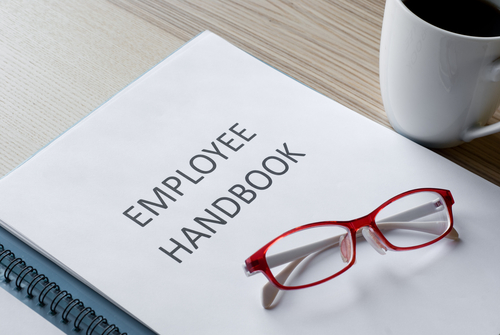As we start the new year, it’s a great time to review and update your employee handbook to ensure it’s in line with the latest federal, state, and local regulations. With new laws taking effect on January 1, now is the perfect moment to make necessary revisions that promote clarity and compliance in your workplace.
Key Updates to Consider
When revising your employee handbook, consider these essential updates:
Disclaimer: Clearly state that the handbook isn’t a contract and may be revised at any time.
At-Will Employment: Include language supporting at-will employment and disability accommodation policies.
Anti-Harassment: Define policies and complaint processes to ensure a respectful workplace.
Pay Policies: Detail payroll practices, overtime, and time-keeping responsibilities.
Benefits: Outline eligibility for welfare and retirement plans with references to plan documents.
Leave Policies: Specify eligibility and guidelines for FMLA and other leave types.

Staying Compliant with Changing Laws
Employers should also stay current on federal and state trends that could impact their handbooks, such as the Pregnant Workers Fairness Act, updates to noncompete agreement language, and the National Labor Relations Board’s rulings on work rules.
Handbooks must also reflect developments in state and local laws, particularly if you have remote employees. Ensure that you review state-specific requirements, such as pay transparency laws, minimum wage increases, and marijuana legalization.
For companies experiencing changes in staffing levels, ensure that your handbook reflects any new legal obligations based on your employee population size.
Why Annual Reviews Matter
An up-to-date employee handbook ensures legal compliance, provides clear guidelines to employees, and strengthens your company culture. Regular updates help minimize confusion and legal risks while maintaining employee trust and morale.
It’s a good practice to review your handbook at least once a year to ensure it reflects the latest changes in law and company policies. Consult legal experts to confirm your handbook aligns with current regulations and meets your organization’s unique needs.
Need help reviewing or updating your employee handbook?
Contact a handbook expert at aHRrow today for a professional review and update.

